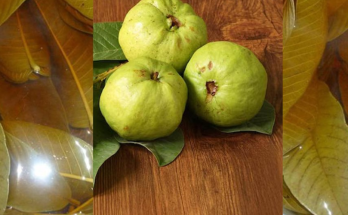Growing robust and healthy seedlings is a cornerstone of successful gardening, whether you’re cultivating peppers, tomatoes, cucumbers, or any other plants. The secret to achieving this goal lies not just in careful planting but also in how you prepare and enrich the soil. By incorporating simple, natural additives into your soil, you can create an environment that fosters vigorous growth and resilience in your young plants. Here’s how to nourish your soil with elements that will bring out the best in your seedlings.
The Power of Bay Leaves and Onion Peels
Bay Leaves: A Treasure Trove of Nutrients
Start by enhancing your soil with bay leaves. Packed with vitamins B and C, bay leaves are more than just a culinary delight; they’re a boon for your plants. These leaves are also rich in essential minerals like phosphorus, magnesium, calcium, and iron, not to mention organic acids and tannins that benefit soil health. To utilize bay leaves in your soil, simply add 1 teaspoon of ground bay leaves per liter of soil. This addition will infuse your soil with nutrients that promote healthy plant growth.
Onion Peels: Microelement Marvels
Don’t overlook the potential of onion peels. These kitchen scraps are a free and effective way to supply your plants with microelements vital for developing strong roots and sturdy stems. Add 1 tablespoon of crushed onion peels per liter of soil to fortify your seedlings right from the start.
Planting and Soil Preparation
Before planting your seeds, ensure the soil is adequately moistened. A solution of succinic acid, with 1 tablet dissolved in a liter of water, can work wonders. This acid is a powerhouse, energizing soil organisms and plants alike. It boosts growth, fortifies immunity, and enhances the plants’ ability to adapt to new environments. After mixing well, use this solution to moisten your soil, then proceed to plant your seeds in separate containers to give them the individual space they need to thrive.
Accelerating Germination and Boosting Growth
For seedlings to become strong and resilient, consider the following additional methods:
- Tangerine Peel Additive: Dried and ground tangerine peels can make your soil more retentive and aerated, which is crucial for root development and overall plant health. By adding 1-2 tablespoons per liter of soil, you’re not just improving soil texture; you’re also providing a slow-release source of nutrients that supports growth and enhances your harvest.
- Rice Flour and Turmeric: A mixture of rice flour and a bit of turmeric powder can significantly benefit your seedlings. Rice flour, rich in nitrogen, phosphorus, potassium, and other trace elements, nourishes the plants, while turmeric, with its antibacterial and antiviral properties, helps to protect them. Add 1 teaspoon of rice flour and a sprinkle of turmeric to the soil before planting to ensure your seedlings grow up healthy and strong.
Liquid Fertilizer for Established Seedlings
Once your seedlings have sprouted their first true leaves, a homemade liquid fertilizer can provide an additional boost. Mix a heaping teaspoon of rice flour and a teaspoon of turmeric in 1 liter of hot water (70-80 degrees Celsius). Let it infuse for several hours. This nutrient-rich solution can be applied to the seedlings at the root, encouraging further growth. A second application after two weeks can significantly benefit tomatoes, peppers, cucumbers, and other plants.

By incorporating these simple, natural additives into your gardening practice, you can significantly enhance the growth, health, and resilience of your seedlings. These methods are not only effective but also sustainable, offering a way to utilize common kitchen scraps and natural ingredients. Remember, the foundation of a healthy plant lies in the care and preparation you invest in its earliest stages. Happy gardening!




This really answered my drawback, thank you!